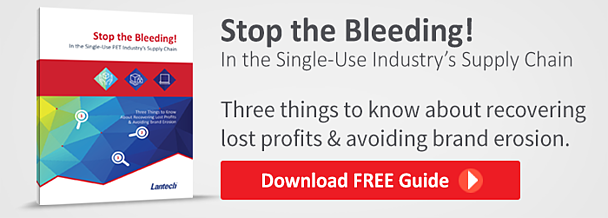When is the last time you really thought about in-transit product damage with your beverage loads? Chances are, unless you are directly involved in the shipping process of your product, the effects of such damage can go unnoticed.
Here are three things you need to know about stretch wrapping in the Single-use PET industry. 
1. In-transit product damage as a result of ineffective stretch wrapping takes a bigger-than-you-think bite of the profits.
With razor thin margins on bottled water, damaged product is not an option. A lost sales opportunity, rework and strained business relationships are all potential consequences of damaged product.
2. The root cause of about 50% of in-transit product damage is ineffective stretch wrapping.
In North America alone, the in-transit damage caused by ineffective stretch wrapping amounts to some $35 million dollars a year. At least half of this damage can be avoided simply by improving the quality of stretch wrapping.
3. You can’t fix this by yourself.
Rafael Nadal and Roger Federer are both great tennis players. Something else they have in common is they don’t try to coach themselves – they hire coaches. They know that even though they are experts themselves, they need dispassionate analysis and help and that it must come from outside.
There are many challenges when wrapping bottled water, such as reductions in primary packaging and the “slosh” factor that occurs when the water’s weight shifts suddenly. But you don’t have to face the challenges alone. Download our free guide Stop the Bleeding! In the Single-Use PET Industry’s Supply Chain to learn about recovering lost profits and avoiding brand erosion due to in-transit damage.
This post was published on September 20, 2019 and updated on November 11, 2019.
September 20, 2019

